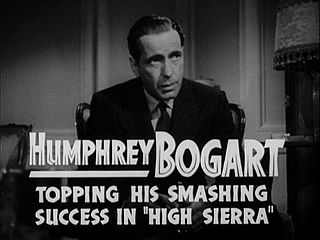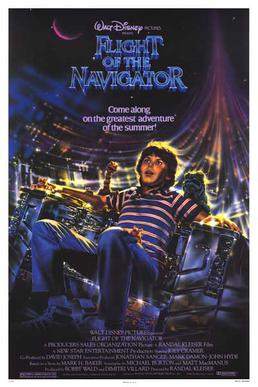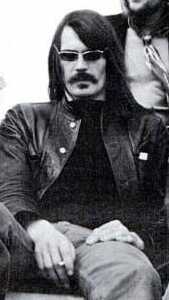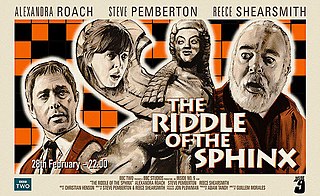
The Rogallo wing is a flexible type of wing. In 1948, Francis Rogallo, a NASA engineer, and his wife Gertrude Rogallo, invented a self-inflating flexible wing they called the Parawing, also known after them as the "Rogallo Wing" and flexible wing. NASA considered Rogallo's flexible wing as an alternative recovery system for the Mercury and Gemini space capsules, and for possible use in other spacecraft landings, but the idea was dropped from Gemini in 1964 in favor of conventional parachutes.

Kenneth Anger was an American underground experimental filmmaker, actor, and author. Working exclusively in short films, he produced almost 40 works beginning in 1937, nine of which have been grouped together as the "Magick Lantern Cycle". Anger's films variously merge surrealism with homoeroticism and the occult, and have been described as containing "elements of erotica, documentary, psychodrama, and spectacle". He has been called "one of America's first openly gay filmmakers", with several films released before homosexuality was legalized in the U.S. Anger also explored occult themes in many of his films; he was fascinated by the English occultist Aleister Crowley and an adherent of Thelema, the religion Crowley founded.

Sam Spade is a fictional character and the protagonist of Dashiell Hammett's 1930 novel The Maltese Falcon. Spade also appeared in four lesser-known short stories by Hammett.

Lux Radio Theatre, sometimes spelled Lux Radio Theater, a classic radio anthology series, was broadcast on the NBC Blue Network (1934–35) ; CBS Radio network (1935–54), and NBC Radio (1954–55). Initially, the series adapted Broadway plays during its first two seasons before it began adapting films. These hour-long radio programs were performed live before studio audiences. The series became the most popular dramatic anthology series on radio, broadcast for more than 20 years and continued on television as the Lux Video Theatre through most of the 1950s. The primary sponsor of the show was Unilever through its Lux Soap brand.

Flight of the Navigator is a 1986 American science-fiction adventure film directed by Randal Kleiser and written by Mark H. Baker, Michael Burton, and Matt MacManus. It stars Joey Cramer as David Freeman, a 12-year-old boy, who is abducted by an alien spaceship and transported from 1978 to 1986. It features an early film appearance by Sarah Jessica Parker as Carolyn McAdams, a key character who befriends David in a time of need.

Jack Cardiff, was a British cinematographer, film and television director, and photographer. His career spanned the development of cinema, from silent film, through early experiments in Technicolor, to filmmaking more than half a century later.

High Treason is a 1951 British spy thriller. It is a sequel to the film Seven Days to Noon (1950) from the same team. Director Roy Boulting, co-director and co-writer of the first film also directed and co-wrote this one. Frank Harvey, Boulting's co-writer, was also a co-writer of the earlier film. André Morell reprises his role as Detective Superintendent Folland of Scotland Yard's Special Branch from the first film, though in High Treason he is subordinate to the head of Special Branch, Commander Robert "Robbie" Brennan, played by Liam Redmond.

Hang gliding is an air sport employing a foot-launchable aircraft. Typically, a modern hang glider is constructed of an aluminium alloy or composite-framed fabric wing. The pilot is ensconced in a harness suspended from the airframe, and exercises control by shifting body weight in opposition to a control frame.
Peter Wollen was a film theorist and filmmaker. He studied English at Christ Church, Oxford. Both political journalist and film theorist, Wollen's Signs and Meaning in the Cinema (1969) helped to transform the discipline of film studies by incorporating the methodology of structuralism and semiotics. He taught film at a number of universities and was Professor Emeritus at the University of California, Los Angeles at the time of his retirement from academe in 2005.

Michael Roland Ratledge is a British musician. A part of the Canterbury scene, he was a founding member of Soft Machine. He was the last founding member to leave the group, doing so in 1976.

The Brides in the Bath is a 2003 television film by Yorkshire Television for ITV, based on the life and trial of British serial killer and bigamist George Joseph Smith, the "Brides in the Bath Murderer". Martin Kemp plays the role of Smith, and Richard Griffiths plays barrister Sir Edward Marshall-Hall. The film was directed by Harry Bradbeer, and written by Glenn Chandler.

O. Henry's Full House is a 1952 American anthology film made by 20th Century Fox, consisting of five films, each based on a story by O. Henry.

Tenen Holtz was an American actor. He appeared in nearly 60 films between 1926 and 1961.
Charles Joel Saunders was an English film director and screenwriter who began in the industry as a film editor, and who also contributed to television. He was the brother of the theatrical producer Sir Peter Saunders.

Hammerhead is a 1968 British Eurospy thriller film directed by David Miller and starring Vince Edwards, Judy Geeson, and Diana Dors. Its plot concerns a criminal mastermind who attempts to steal NATO secrets, with an American agent hot on his trail. It is based on the 1964 novel of the same title by English novelist James Mayo, and produced by Irving Allen and written by Herbert Baker, who made the Matt Helm films for Columbia Pictures. It was filmed in London and Portugal.

They Can't Hang Me is a 1955 British drama film directed by Val Guest and starring Terence Morgan, Yolande Donlan and Anthony Oliver. It was based on a novel by Leonard Mosley. It was shot at Shepperton Studios near London. The film's sets were designed by the art director Joseph Bato.

Lucifer was a British solo rock project active in the early 1970s, the alias of Denys Irving. Howard Marks clearly states in his autobiography Mr Nice, that Lucifer was the solo work of Denys Irving. This admission by Marks went unnoticed for years, so the identity of Lucifer was often falsely attributed to Peter Walker of The Purple Gang, due to the fact Walker started calling himself Lucifer in the late sixties. There are also references to Lucifer and Denys Irving in the biography Howard Marks, His Life and High Times by David Leigh, and the e-book Rogue Males: Richard Burton, Howard Marks and Sir Richard Burton (2010) by Rob Walters. Denys Irving is also mentioned in the book A history of artists' film and video in Britain, 1897–2004, by David Curtis. The records were only available via mail order through adverts in papers such as Oz magazine, Record Mirror, New Musical Express and International Times.

Mark Kingston was an English actor who made many television and stage appearances over his 50-year career.
Riddles of the Sphinx is a 1977 British experimental drama film written, directed and produced by Laura Mulvey and Peter Wollen and starring Dinah Stabb, Merdelle Jordine and Riannon Tise.

"The Riddle of the Sphinx" is the third episode of the third series of the British dark comedy anthology television programme Inside No. 9. It first aired, on BBC Two, on 28 February 2017. The episode was written by the programme's creators, Steve Pemberton and Reece Shearsmith, and directed by Guillem Morales. "The Riddle of the Sphinx", which is set in Cambridge, stars Alexandra Roach as Nina, a young woman seeking answers to the Varsity cryptic crossword, Pemberton as Professor Nigel Squires, who pseudonymously sets the crossword using the name Sphinx, and Shearsmith as Dr Jacob Tyler, another Cambridge academic. The story begins with Nina surreptitiously entering Squires's rooms on a stormy night and being discovered; this leads to Squires teaching her how to decipher clues in cryptic crosswords.
‘A history of artists' film and video in Britain’, 1897 – 2004, (British Film Institute Publishing, 2006) by David Curtis.
& the e-book ‘Rogue Males: Richard Burton, Howard Marks and Sir Richard Burton’ (2010) by Rob Walters.
With additional biographical information provided by Andrew Irving.
















